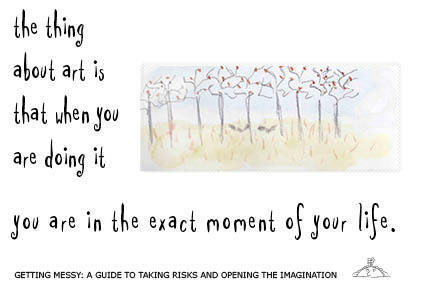Kim Hermanson's Blog, page 41
August 29, 2012
Best-selling author Jennifer Louden's Rave Review of GETTING MESSY
"Getting Messy is one of my very favorite books about teaching. Nobody else outlines what teaching is really like and how to approach is soulfully like Kim does. I created an entire course before I read this book on teaching - and it's great - but I wish I had this book before I created it because it would be even better. Luckily, Kim let me interview her to be part of the course. :) If you have an interest in teaching anything in a way that is real, sustainable and honest - as well as fun - please read this book. And if you suffer as a teacher, double triple please read this book. You will be so happy you did!"
Jennifer Louden is the best-selling author of The Women's Comfort Book and many other books, as well as the founder of TeachNow, a highly popular training for teachers.
Do you have a friend or family member who has just begun teaching and could use some support?? Or conversely, do you know someone who has been teaching for years and is starting to feel burned out?? I wrote Getting Messy to be a friend during those difficult moments. It presents a unique and soulful approach to teaching, with the primary focus being to help teachers reconnect with their own voice and partner with something I call "third space."
You can purchase copies of Getting Messy on Amazon, Barnes & Noble, Google books, or iTunes. Enjoy!









July 13, 2012
Trusting What We Can't See
25 years ago I critically injured my spinal cord in a head-on collision on a highway and doctors at one of the best spinal trauma units in the country gave me less than 5% chance of walking again. I had no sensation in my body below the waist. Day after day, I listened carefully to these esteemed doctors, asking them questions about my condition. But despite my prognosis—I not only had broken vertebra, my spinal chord had been displaced by 40 degrees—what they were saying never really registered. Even with their brilliant educations and considerable experience, I did not feel they were giving me a “truth” that I needed to believe.
Education and science were highly prized in my family. Both of my parents and both grandfathers received college degrees in the sciences; my sister is a physician, my brother an engineer. I was young and had no training or experience in disbelieving “experts.” After all, these were esteemed physicians at prestigious medical center. Why did I not believe them?
I wasn’t feeling resistance toward what they had to say. I was not blocking out their advice and information and I wasn’t proclaiming that I would “do my own thing” and prove them wrong. I was not locked into a battle with them or the information they were providing to me. On the contrary, I was open to what they had to say. What was happening for me was a knowing on some other level—-a level where I could understand and process their information, but then make my own determination about what to do with that information. The “knowing” did not come from my rational mind, but from some level that I could not see or explain. I just knew.
Another unusual thing was that in the six months prior to the accident, I was focused intently on rigorous physical exercise. Every night after work, I played two hours of hard racquetball with my male coworkers, followed by an hour of vigorous lap swim. Although I’ve been active in my life, this period of time involved an abnormal amount of highly focused daily exercise…as if my body was preparing for what was to take place. Again, this was not a rational knowing. I was simply following some unarticulated inner wisdom.
In both instances, I was trusting in something that I could not see. I can’t explain why I get frazzled by minor traffic tickets or bad hair days, but when face-to-face with the best medical doctors in the country telling me that I would be permanently paralyzed and unable to use my bladder again, I was unfazed. I simply did not believe them. After several months in the hospital, I was able to walk with the use of a cane. Twenty-six years later, no one would ever guess at the extent of my injuries.
What voice do YOU need to listen to right now?









June 24, 2012
Creativity Lessons from Top Chef
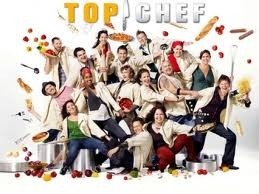
I adore Top Chef. I have no idea what fois gras is or why anyone would want to eat a meal of molecular gastronomy, but regardless, I think the show offers some very helpful tips for any creative genre. (Beside, where else can one hear such phrases as “exhibit balance” and “show restraint”?) Here are this season’s lessons:
You may deconstruct a traditional dish (and get kudos for doing so), but make sure all the components go together. The dish needs to “make sense.”
Show restraint, but not so much restraint that you bore people.
Never, never do something that confuses the dish.
The flavor should be rich without being overpowering.
Don’t let the star be lost in the dish—the lesser actors must not compete with the primary attraction.
Don’t over-season your food, but God forbid, never, NEVER under-season. Err on the side of too much, rather than too little.
Your confidence must come through in the dish. If you can’t execute it properly, come up with something else that you can execute properly.
On the other hand, in a group of individuals with boring dishes, your originality will win you points, and just might keep you safe for another week. In other words, best to keep coming up with new ideas.









June 23, 2012
being in the exact moment of your life
June 20, 2012
Profound Vulnerability
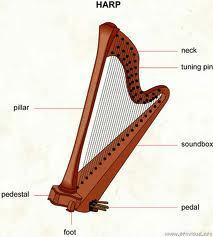
Several years ago I attended a Christmas Eve church service where the female pastor (who was clearly a beginner) played Silent Night for the audience on her harp. I have never forgotten that moment, nor her profound vulnerability. The tenderness of it, risking our judgment and ridicule...
The educator Maxine Green said, "When we are most vulnerable, we are most alive. In our vulnerability is our power” and I have always loved that statement. Of course it would make sense, as well. There is something so beautiful about profound vulnerability.
May you find your place of vulnerability.









June 15, 2012
Trusting Your Gut, Even When It Seems Crazy
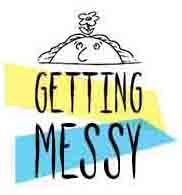
A few years ago my intuition nudged me to give a class the assignment of writing a song. Only three students had any sort of musical ability, so I came up with an alternate assignment for the others. Of those three students, only one young woman—Carmel Bracken, a workshop leader and educator from Ireland—was inspired to give it a try. She had never written a song before, and the song she produced still moves me to tears. You can listen to it here:
I’m offering this in case you feel inclined to ignore your quiet, whispering inner voice because whatever it’s saying doesn’t make sense or seems too outrageous or only one student in the class might grasp it. Creative expression, of whatever form, just needs an opening and the rest takes care of itself. If you are a teacher, trainer, coach, parent, mentor, or group facilitator, you have the opportunity to provide those openings for others. All you need to do is create the space for it.









May 30, 2012
Getting Messy at East West Books, Mountain View, CA Friday June 1st 7:30 pm!
Hi All,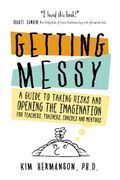
I'm planning to bring my guitar and encourage loud, boisterous singing at this upcoming event this Friday evening, at East West Bookstore in Mountain View. At my last book event, an elderly lady kept asking me when we were going to get "messy." She helped validate what I was feeling--a "traditional" book talk where the author stands up in front and reads from her book is just not me! We will be getting messy on Friday evening, so I hope you can join us. :-)









May 16, 2012
The Magic of Odd Numbered-Groups (As Opposed to Even-Numbered)
Last week I was interviewed about Getting Messy by Jefferson Public Radio in Southern Oregon. (You can listen to the interview by clicking ""Press & Media" on my blog OR by going to JPR's website.)
The interview was an hour-long, and the listeners who called in had all kinds of interesting things to say about teaching and learning. Perhaps the most intriguing was one man who spoke of how "three" or "five" is a magic number in group situations. He said that when there are three people or five people, the group can come to a decision more quickly than if there are an even number of participants. His comment reminded me of the work I've been doing recently on "bridging polarities." Teaching and learning are polarities, and Getting Messy is about bridging the teaching-and-learning polarity (finding our way to "third space" where we are both teachers and learners). But when groups come together, there are also many other potential polarities that might be present (men/women, young/old, conservative/liberal to name a few). What happens when you have three people, five people, seven people, and so on, is that you have a "mid-point." An even number of people (metaphorically speaking anyway), suggests that the group could split evenly into two opposing camps.
In any case, I send a big thank you out to Jefferson Public Radio and their listening audience. It was great fun (and a little messy!)









May 6, 2012
Getting Messy on Jefferson Public Radio - May 7, 2012

I'll be interviewed on Jefferson Public Radio this Monday morning at 8 am about GETTING MESSY. You can listen to the interview via web or MP3 download from anywhere in the world. Here's the link:http://www.ijpr.org/onlineaudio.asp?SectionID=0&programId=11&txtStartDate=5%2F7%2F2012&txtEndDate=5%2F7%2F2012
The radio interview precedes a book event on Thursday, 7 PM at Bloomsbury Booksin Ashland, Oregon.









March 28, 2012
Not Knowing Lies at the Core of Creativity
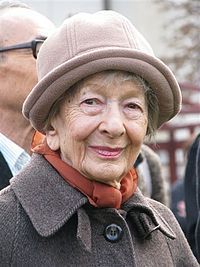
photo by Mariusz Kubik
From Wislawa Szymborska's Nobel Prize in Literature Lecture, December 7, 1996:
I value that little phrase "I don't know" highly. It's small, but it flies on mighty wings. It expands our lives to include the spaces within us as well as those outer expanses in which our tiny Earth hangs suspended. If Isaac Newton had never said to himself "I don't know," the apples in his little orchard might have dropped to the ground like hailstones and at best he would have stooped to pick them up and gobble them with gusto. Had my compatriot Marie Sklodowska-Curie never said to herself "I don't know", she probably would have wound up teaching chemistry at some private high school for young ladies from good families, and would have ended her days performing this otherwise perfectly respectable job. But she kept on saying "I don't know," and these words led her, not just once but twice, to Stockholm, where restless, questing spirits are occasionally rewarded with the Nobel Prize.
I hope you've said "I don't know" at least once today.










